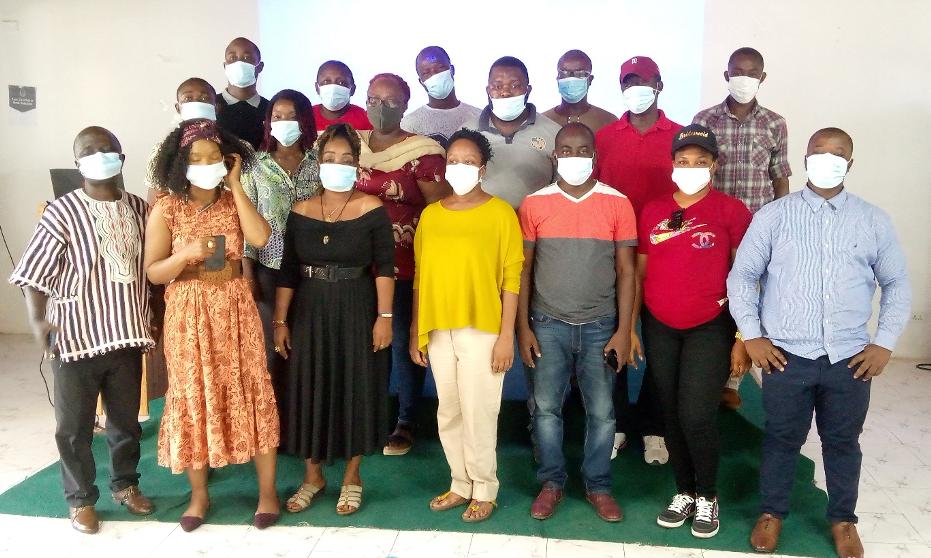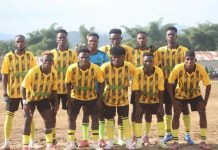Africa-Press – Liberia. The Technical Support Team (TST), a Sub-committee for the formulation of Liberia’s National Urban Policy (NUP), has held an Intensive Two-day Interactive Dialogue in Monrovia, to provide technical support to the NUP. The two days meetings of TST members were held at Smart Liberia campus in Jallah Town, Monrovia.
The two-day event brought together several key stakeholders from across Government Ministries, Agencies, and Commissions (MACs) all geared towards the promotion of a more transformative, productive, inclusive, and resilient urban development in Liberia.
The Technical Support Team meeting brings to phase three, the formulation of the country’s national urban policy. It can be recalled that the Ministry of Internal Affairs, along with United Nations Habitat, have held the launch of the NUP as well as the convening of the National Steering Committee meeting; and the recently-held TST meeting; all geared towards crafting a comprehensive urban policy for Liberia.
The goal for the formulation of the policy for the country is to improve the livability of urban settlements through poverty reduction, improved environmental conditions and climate resilience, economic development, social and spatial integration, better governance, and institutional planning.
It can be recalled that since 2013, through the Department of Urban Affairs at the Ministry of Internal Affairs (MIA), the Government of Liberia (GoL) initiated the process of developing the Liberian National Urban Policy (NUP). The ongoing UN-Habitat Technical support to the Government in developing a NUP is aimed at poverty reduction and fostering sustainable and resilient Liberian cities.
The development of a NUP is a coordinated effort from the Government, in collaboration with key domestic and international stakeholders that are anchored in close partnership with the MIA. Accordingly, it has led to the establishment of the National Habitat Committee (NHC) from Habitat III and beyond, as well as the establishment of the Technical Support Team (TST) for the formulation of the NUP.
The NUP for Liberia is expected to coordinate the work of different sectors, establish incentives for more sustainable practices, and create a balanced system of cities and towns through strengthening urban-rural linkages and equitable resource allocation.
When formulated, the national urban policy will not only help reduce urban and territorial disparities within and among regions in Liberia but also promote institutional collaboration and policy coherence towards the achievements of Liberia’s National Development agendas. By linking sectoral policies, connecting global agenda, national, regional, and local government policies, and strengthening urban and rural links through integrated territorial development; the NUP is set to provide a consistent vision and sustainable national urban strategy for Liberia.
The Technical Support Team which is linked with to the NHC seeks to provide expertise and technical guidance to the policy development process. The policy formulation of the NUP adheres to five key principles: participation, inclusion, affordability, sustainability, and implementation. Hence, the TST workshops are part of the overall formulation strategy integrated within the formulation phase of the NUP’s development that is aimed at introducing the policy process at the national level and giving national stakeholders a forum they can engage and voice their needs and challenges from their perspective.
Therefore, the two-day intensive interactive dialogue objective was to provide the forum for technical stakeholders to review the draft NUP as well as create a platform for stakeholders to exchange ideas on various NUP themes and policy options.
The event which was smoothly and comprehensively facilitated by Madam Bindu Brewer, a National Urban Policy Expert, and Consultant of UN-Habitat; was very engaging as participants were provided the opportunity to adequately debate the various thematic areas and reached a consensus that would be embedded in the draft policy for further consultations.
Meanwhile, the NHC in collaboration with the MIA is expected to convene three regional meetings among municipal authorities and stakeholders in the central, western, and southeastern parts of Liberia. The meetings are expected to be convened in Gbarnga, Bong County, Tubmanburg, Bomi County, and Harper, Maryland County.
For More News And Analysis About Liberia Follow Africa-Press






